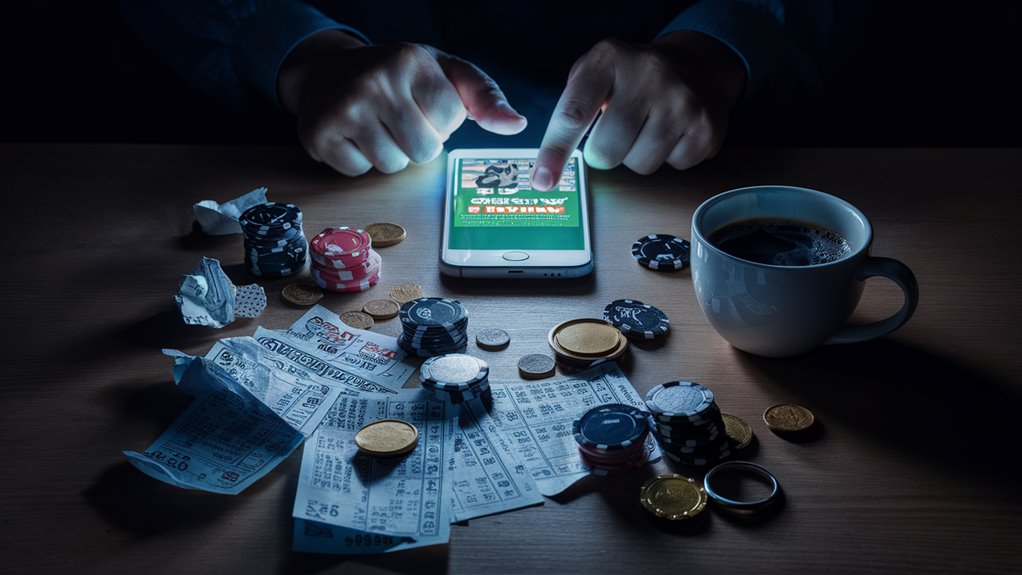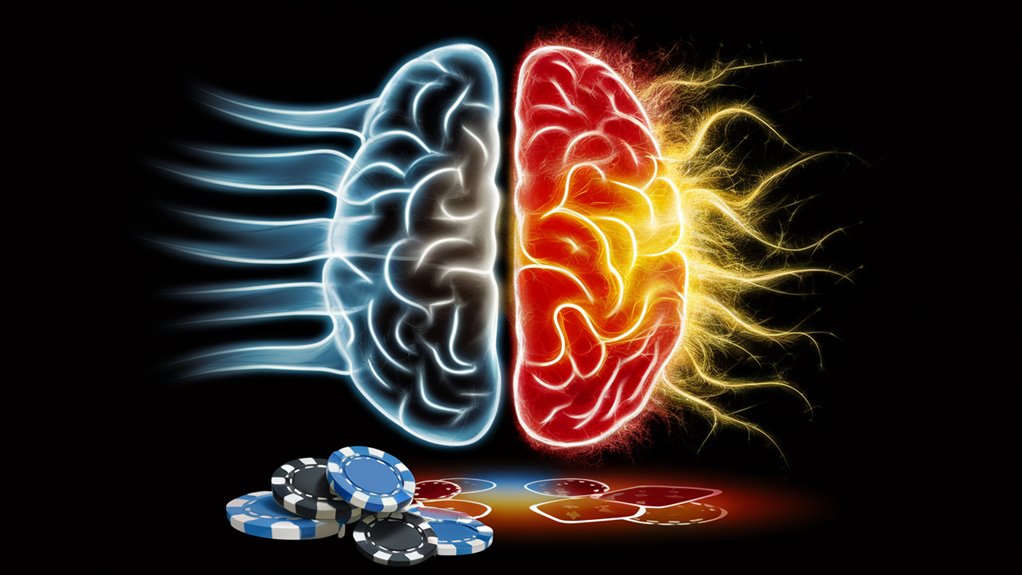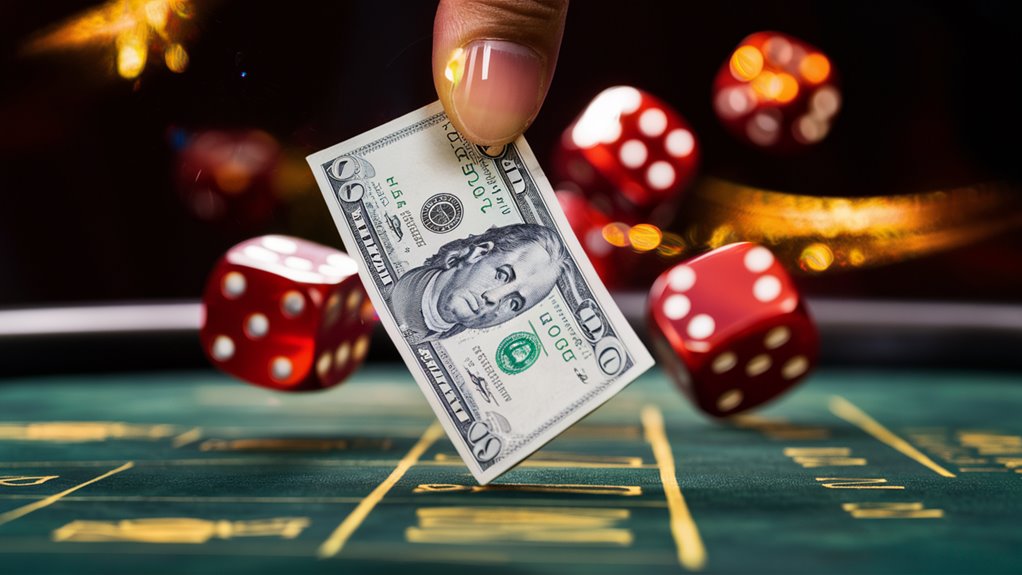
How Gambling Addiction Starts and Grows

Gambling addiction begins with casual betting at fun events that lead to high dopamine release in the brain’s joy parts. The first wins and close misses cause strong brain reactions, making a pattern of waiting and joy.
The Brain Impact
The brain changes a lot when gambling addiction forms. Often seeing gambling changes brain ways, needing bigger bets and riskier plays for the same dopamine joy. This brain change is like other addictions, leading to more risks.
Changes in Actions
As the addiction gets worse, gamblers move from simple bets to complex games. This change comes with lost time sense and forgetting money risks. The need leads to:
- Taking secret loans from many places Brine & Blaze Poker
- Filled credit cards and empty savings
- Worse ties with family and friends
- More alone time and hiding
Signs of Deep Addiction
The problem shows in changes in behavior that touch many life parts. Problem gambling turns into a big addiction, shown by:
- No control over how much they gamble
- Money trouble and growing debt
- Mood changes and swings
- Work quality drops
- Pulling away from people and broken relationships
Knowing these patterns helps us see and tackle gambling addiction’s big effect on mental health and daily life.
The First Simple Bet
How the First Simple Bet Leads to Gambling
The Mindset in Early Gambling
Problem gambling often starts with a simple first bet. These first bet moments usually happen at fun times or with friends, where the setting feels safe.
Whether it’s a bet on sports, buying a lottery ticket, or trying casino games on a trip, these small acts can begin a deep bond with gambling.
Brain Response and Rewards
The science behind that first bet is big due to the brain’s reward system. A win sparks a huge dopamine release, linking gambling and fun fast.
Even losing sets up similar brain patterns through waiting, making a reward cycle that stays no matter the results.
Risk Growth and How it Develops
Moving from casual gambling to addiction happens through key steps:
- Brain ways form linking gambling to joy
- Mind tricks through mixed wins
- Born traits that lean towards addiction
- Life stress and money worries
Many with gambling problems can point to a first important bet that started it all. This first step builds a risky base, especially with problems like sadness or money troubles.
Long Run Effects of Early Gambling
The first gambling moment is a big point that can shape how gambling grows. Knowing this start helps in stopping and fixing gambling addiction. Spotting early risks and using safe steps can slow the move from fun betting to problem gambling.
Early Wins and Near Misses
The Thoughts Behind Early Betting Wins

The Effect of Early Wins and Near Misses
Early wins leave a deep mark on the mind that can change how someone Dandelion Dream Slots acts and makes choices.
When players win at first, the brain’s reward part lets out dopamine, making strong happy feelings and a sense of success.
These first wins build a wrong belief that gambling might lead to money, even though the odds are against it.
The Near Miss Effect
Near miss events act as big mind triggers in gambling.
When slot icons or roulette numbers almost match bets, the brain sees these as different from full losses.
Casinos plan these near-miss times to keep players in the game. These feed the brain reward ways as much as real wins, pushing gambling even with losses.
Science and Risks
Studies show that those who likely gamble too much react more to near misses, often seeing them as future win signs. This is a big mistake in thinking with gambling.
The mix of early wins and near misses changes brain ways that raise the chance of addiction. The brain’s reward system changes with these events, likely leading to lasting moves that add to problem gambling habits. 먹튀검증 순위
Brain Chemistry Changes
How Brain Chemistry Changes with Gambling Addiction
Dopamine and Reward Changes
Long gambling changes the brain’s tools for sending messages. As one bets, the brain lets out dopamine, key for feeling rewards.
With more gambling, the brain’s reward ways get less sharp at natural joys, needing bigger bets for the same dopamine feeling.
Front Brain Effects
The front brain, key for planning and control, changes a lot in problem gambling.
Brain scans show less work in this key spot among those with a gambling issue, making it hard to stop gambling urges. This builds strong brain links that tie gambling cues to expected joys.
Stress and Pulling Away Effects
Long gambling changes how the brain’s stress tools work. The brain makes more stress stuff like cortisol when not gambling, leading to signs like needing it.
This body reaction makes a cycle where brain tools push gambling acts, making fixing the addiction very hard. Changed stress stuff and reward ways push one to keep gambling, even when it hurts them.


